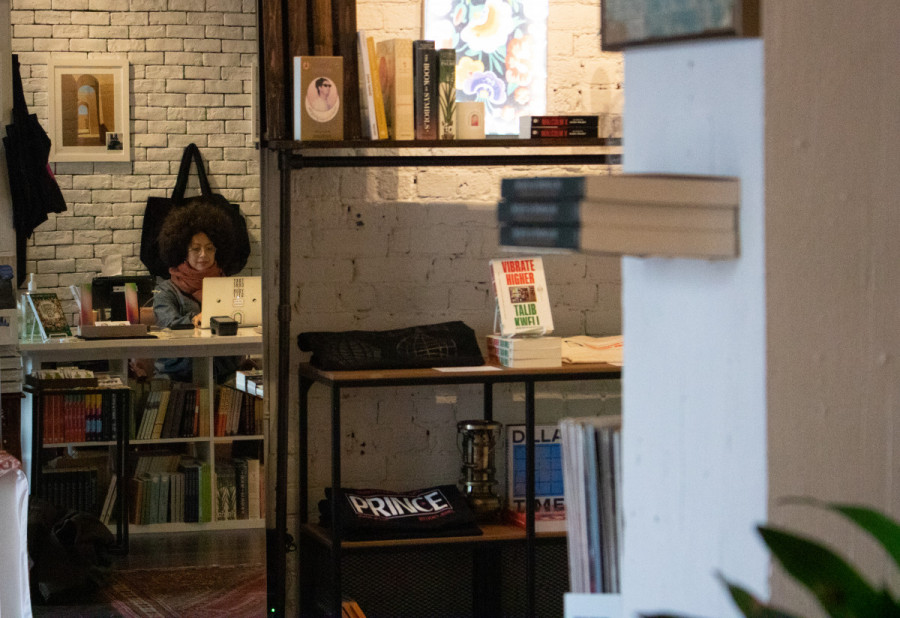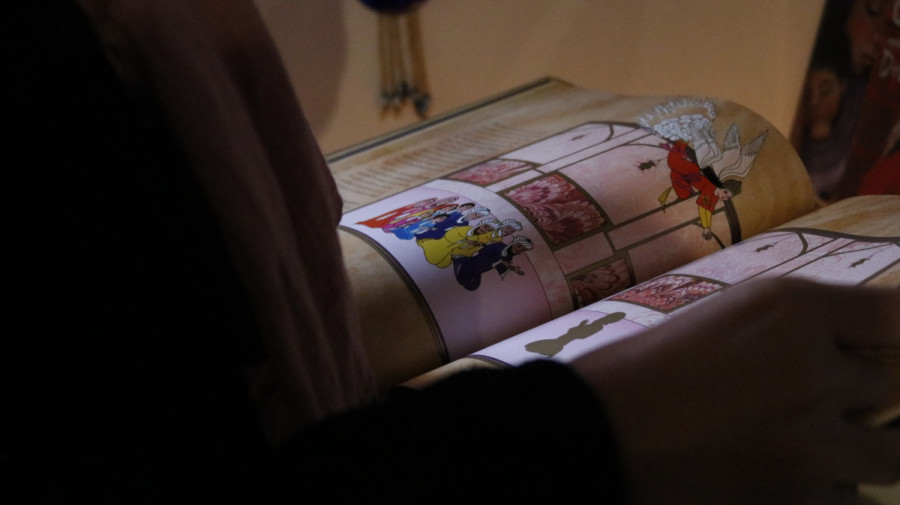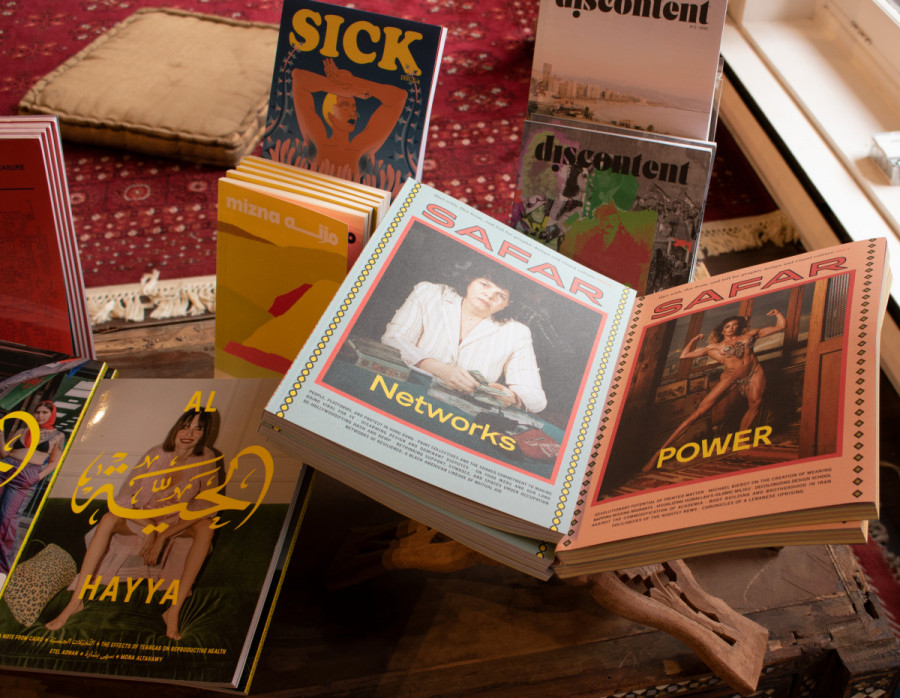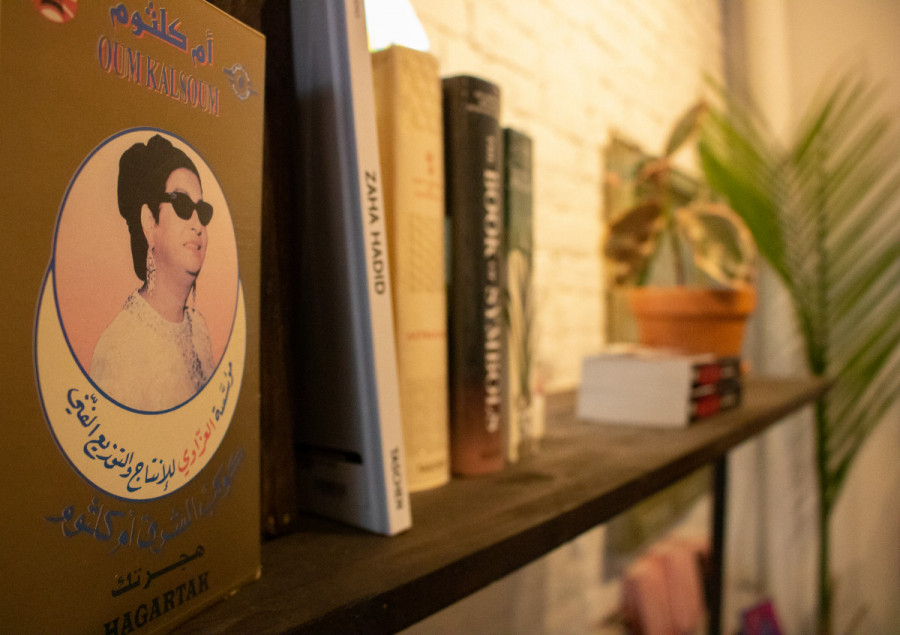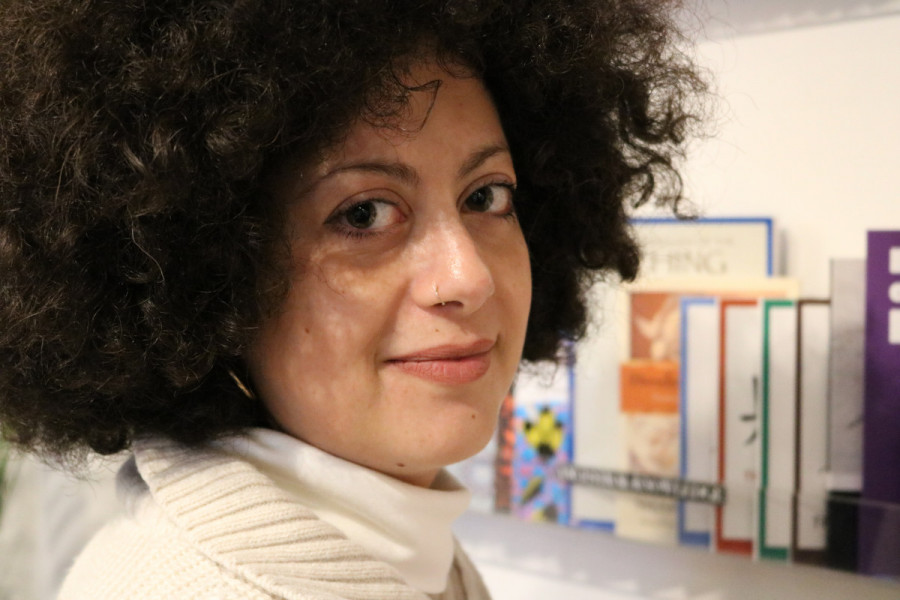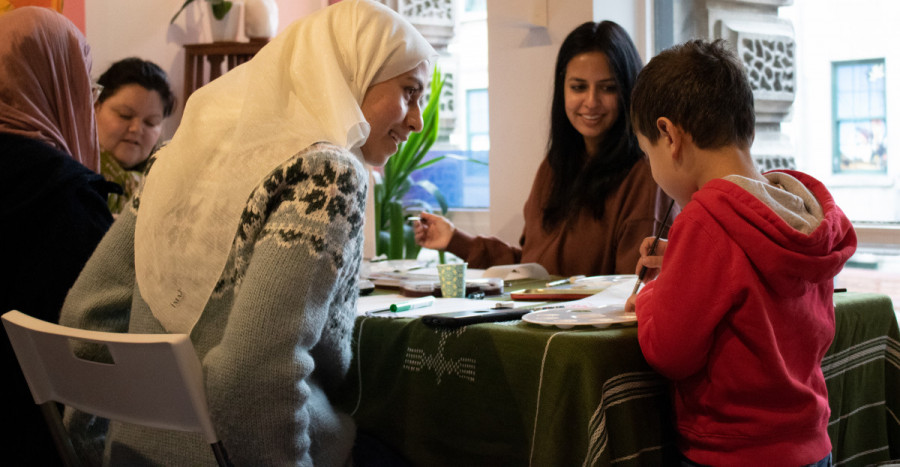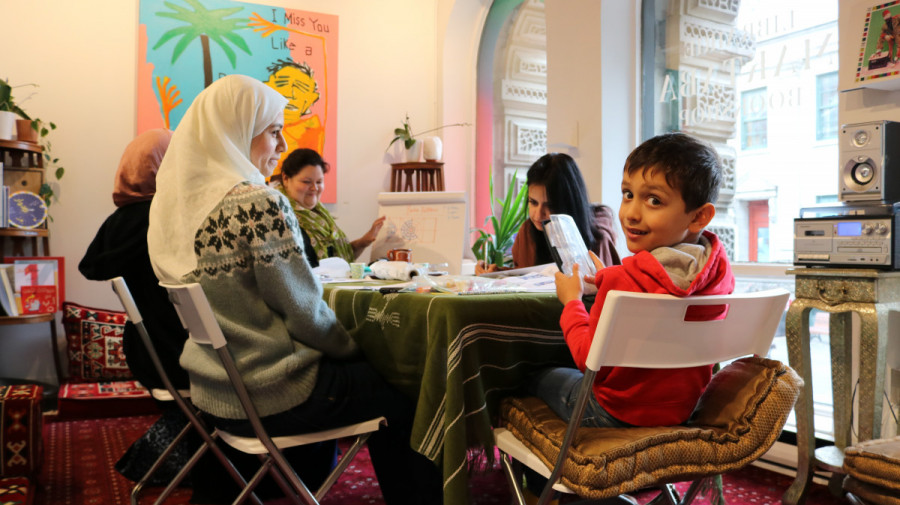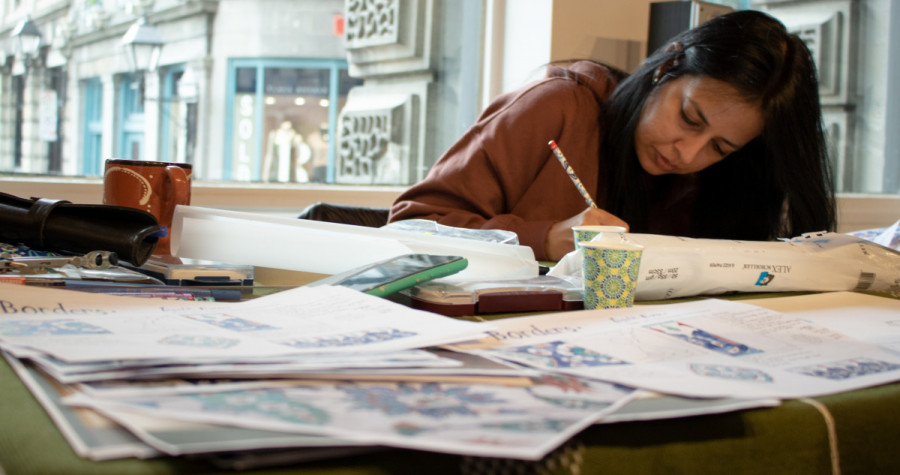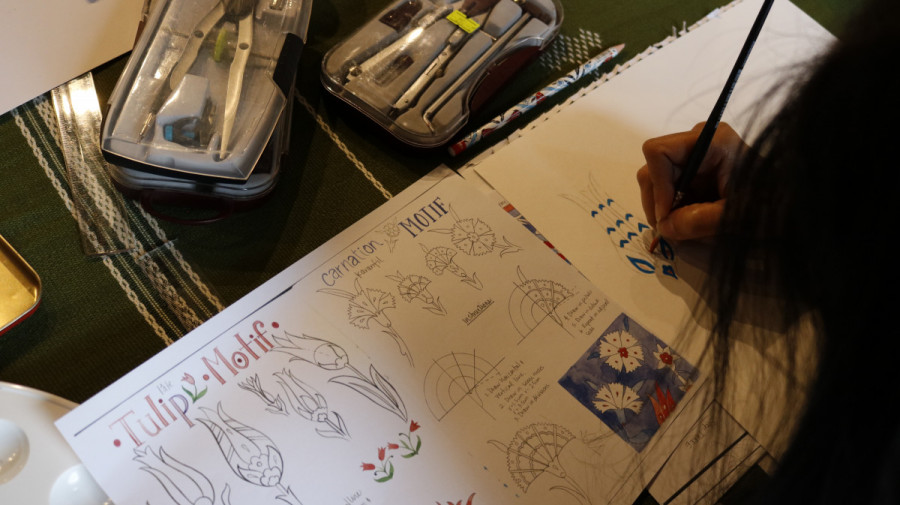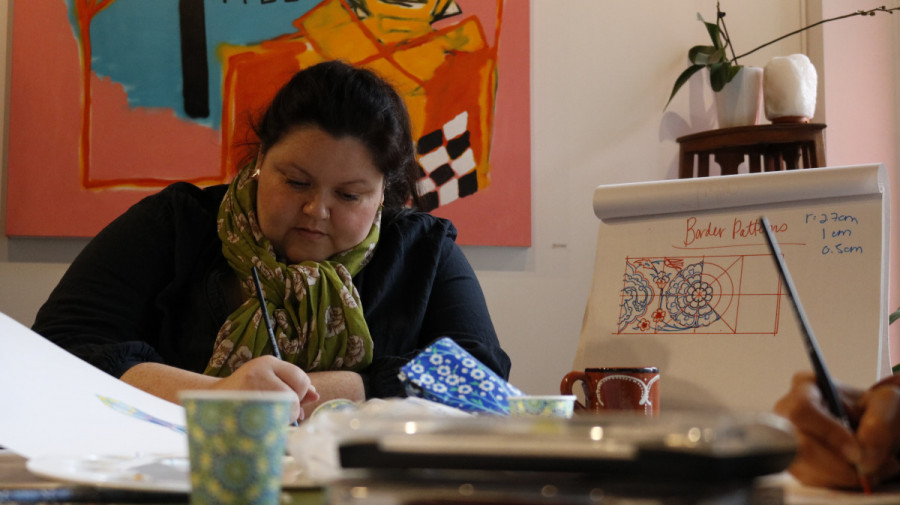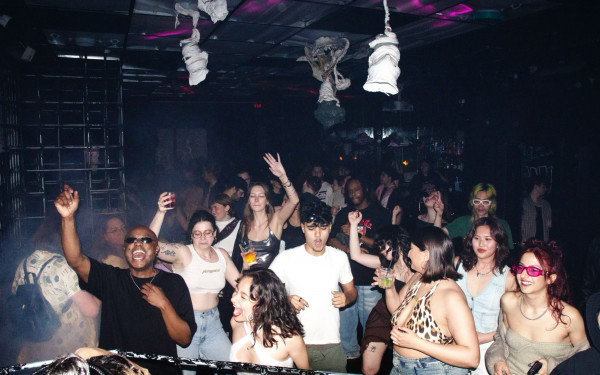Maktaba: Serving Culture Over Commerce
Artist-Run Bookstore Represents SWANA and BIPOC Communities
From the outside it looks like any regular shop in the area, but upon entering, visitors are immersed into the world of the South West Asian North African diaspora.
Customers that enter the shop are greeted with chill hip-hop beats, a cozy red carpet with Islamic patterns and vast amounts of books, magazines, clothing and vinyl records.
One section of the store has shelves stacked with kids’ books with framed posters of famous Arab singers Fairuz and Abdel Halim Hafez. On another shelf rests a book about the Egyptian singing goddess Umm Kulthum next to the autobiography of hip hop legend Talib Kweli. While the store only consists of a single room, the collection, community and people that run Maktaba make it seem larger than life.
The owners of Maktaba are Sundus Abdul Hadi and her partner Yassin “Narcy” Alsalman who are part of the art collective We Are The Medium. The group produces films, music, and now publishes books. The bookstore opened in June 2022 with a curated selection of books by diverse writers on a variety of subjects. The catalog and overall design of Maktaba focuses on the perspectives of SWANA authors who live in the region or belong to the diaspora. Their voices are rooted in political activism and challenges to assumed notions about the Middle East and other marginalized communities. The space also features books from Black Liberation authors and includes novels by Japanese, Turkish and Indigenous writers. Other books focus on mental health and spirituality.
Hip-hop artist Narcy and visual artist Abdul Hadi both shared their projects with the bookstore for entertainment and education. “Maktaba is sort of like a physical art project for the city,” said Alsalman. “We wanted a space to reflect all of our practices of edutainment. We wanted to open a space that served culture over commerce.”.
Alsalman explained that Maktaba’s merchandise is influenced by hip hop, as well as by a mix of Arab, Western and eastern cultures. Their goods include tote-bags, hats, sweaters, shirts, stickers and even skateboards. The store also sells products imprinted with seasonal thematic designs. During November 2022, the theme was the General Federation of International Women. The purpose of these products, according to Alsalman, is to start conversations about the themes they depict, such as identity, gender and language. “When someone's wearing the [GFIW] T-shirt, we want somebody to ask them where they got it from because there aren't that many of them and then for it to start a conversation about whatever the T-shirt is saying,” he said.
Part of the store’s collection is curated by Abdul Hadi but the shop’s community also provides input. “It is curated in terms of what is new and exciting and changing around us,” she said. Abdul Hadi explained the bookstore’s origins lay in a pop-up gallery she rented for her 2017 creative research project, Take Care of Yourself. It was a week-long exhibit featuring works from 28 artists of different backgrounds, centered around the theme of care and struggle.
“I felt really empowered after that to take it [galleries] a bit more seriously and start thinking about what it means to have a permanent space in the city," Abdul Hadi said. "For my community specifically, but also a meeting ground for many other communities as well whose work is important and often marginalized or that don’t have spaces to display their work.”
The bookstore is also a space for community workshops that include tarot card readings, mediation, group readings, art classes, book and magazine launches, as well as guest lectures with local authors. Throughout November 2022, Abdul Hadi used the space for the launch of the Journal Safar and Al Hayya Magazine. Both publications focus on feminist perspectives by SWANA writers. Maktaba also hosted a collective reading of the book You Have Not Yet Been Defeated in solidarity with the Egyptian writer and political prisoner Alaa Abd El-Fattah.
However, not every activity at Maktaba revolves around political activism. Sundus explained that the shop is also a space for the community to create art and enjoy wellness and mindfulness workshops. On Nov.12 and 13, the bookstore hosted Istanbul-based teaching-artist Laurelie Rae for an Islamic art pattern workshop for the first time. The attendees explored biomorphic vegetal and geometric patterns. “The patterns we are exploring are based on Andalusian and Turkish patterns,” said Rae. The attendees consisted of both newcomers and seasoned artists of the craft.
For Abdul Hadi, being able to stock Maktaba with the body of works of SWANA and other BIPOC writers and creatives is a privilege. These books are an essential resource for marginalized and decolonial perspectives and it’s important that she can recommend them to people who may not be aware of their ideas and to walk out of the library with these new narratives. Another important aspect of the store is being able to share these perspectives without having to acquire the items through mega corporations like Amazon. While it can be challenging to run Maktaba in this independent way, it has also allowed the bookstore to flourish into a very unique and creative space. “Through this process, it's been really special for me to be able to just build these relationships and realize that yeah, we can actually run a bookstore a different way,” she said.
This article originally appeared in Volume 43, Issue 9, published January 10, 2023.

